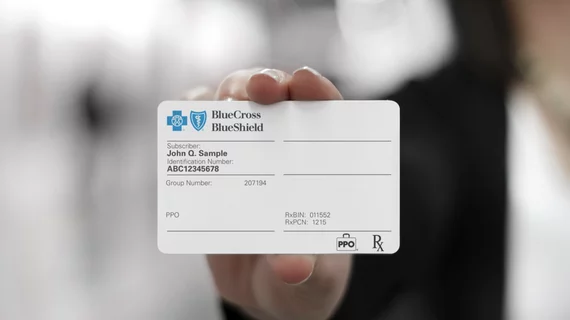Blue Cross Blue Shield affiliate rejects MRI contrast coverage, labeling it ‘investigational’
A Blue Cross Blue Shield affiliate is rejecting coverage for a commonly used MRI contrast agent, labeling its use as “investigational.”
BCBS of Arkansas’ decision pertains to gadopiclenol, a gadolinium-based product sold under the brand names Elucirem and Vueway. The drug is used to help detect and visualize lesions in the central nervous system and body. However, Arkansas’ largest health insurance company, with over 800,000 members, is rejecting reimbursement requests for injection of 1 ml gadopiclenol.
“The services listed in this policy do not meet Arkansas Blue Cross Blue Shield primary coverage criteria. For member benefit certificates (contracts) without primary coverage criteria, these services are considered investigational,” the policy, last reviewed in March, states.
The American Society of Neuroradiology recently alerted its 5,000 members about the policy change in an update published Dec. 17. ASNR noted that the FDA-approved dose for gadopiclenol is 0.05 mmol/kg, which is half the amount for other GBCA OK’d for use in MR imaging of the central nervous system. Medicare and most other commercial cover the gadolinium-based contrast agent, and the GBCA has demonstrated “excellent” diagnostic performance and safe outcomes, as supported by “robust” clinical evidence.
“It is critical to clarify that gadopiclenol is not an investigational drug, but a thoroughly studied and validated agent,” ASNR President Max Wintermark, MD, wrote in a Dec. 2 letter to BCBS of Arkansas’ chief medical officer.
Wintermark shared several relevant studies while also noting that the U.S. Food and Drug Administration approval of gadopiclenol was based on robust data. The GBCA can achieve equivalent or superior diagnostic efficacy using half the amount, presenting a “critical safety advantage.” Reducing patient exposure to gadolinium can help curb the risks associated with retention, he added.
“The substantial body of evidence supporting gadopiclenol demonstrates that it is a clinically validated, effective, and safe option for MRI imaging,” Wintermark wrote. “We urge Arkansas BCBS to reconsider its current position on gadopiclenol coverage. Doing so aligns with evidence-based practices and coverage policies throughout the country, while prioritizing patient safety and diagnostic accuracy,” he added.

